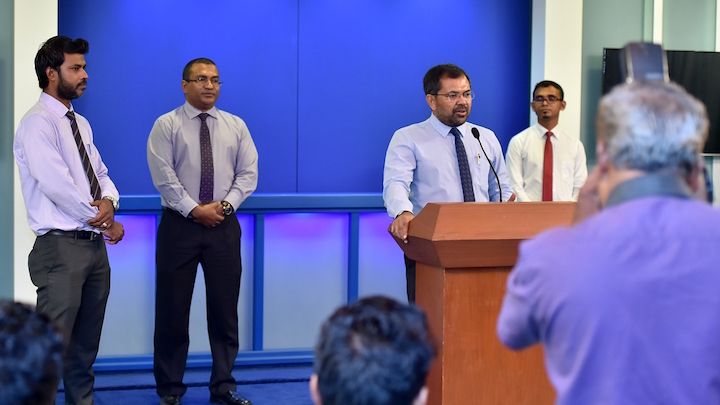Government denies unfairly targeting Gasim’s businesses
Three ministers met the press at the president’s office to defend the Maldives Inland Revenue Authority, stressing that it is an independent institution whose enforcement actions are taken after due process and without any government interference.

06 Apr 2017, 09:00
The government has denied unfairly targeting Jumhooree Party leader Gasim Ibrahim’s business interests after the tax authority froze the bank accounts of his Villa Shipping and Trading Company.
Three ministers met the press at the president’s office to defend the Maldives Inland Revenue Authority on Wednesday, stressing that MIRA is an independent institution whose enforcement actions are taken after due process and without any government interference.
“MIRA has always been collecting income owed to the government from properties that are leased under an agreement and taking the necessary action if the money is not paid,” said Tourism Minister Moosa Zameer.
Ahmed Zuhoor, the president’s office minister and chair of the economic and youth council, said the current administration does not discriminate in reclaiming islands that businesses have failed to develop after they were leased.
Become a member
Get full access to our archive and personalise your experience.
Already a member?
Discussion
No comments yet. Be the first to share your thoughts!
No comments yet. Be the first to join the conversation!
Join the Conversation
Sign in to share your thoughts under an alias and take part in the discussion. Independent journalism thrives on open, respectful debate — your voice matters.




